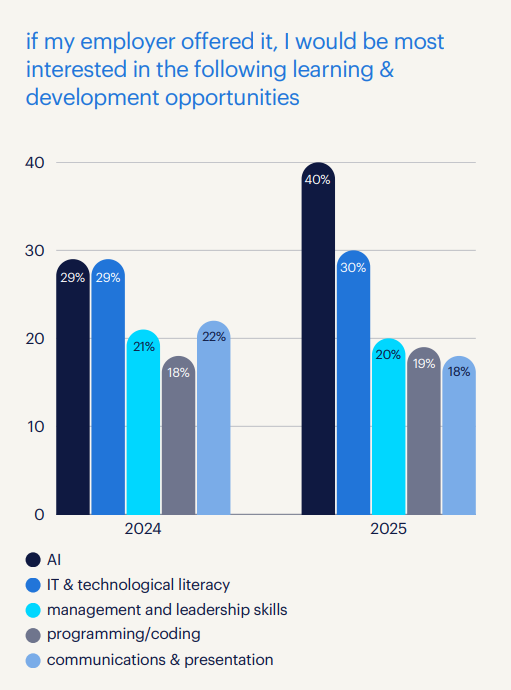36% of workers would agree to earn less if they had friends at work, finds Randstad’s Workmonitor
Randstad concluded that community, equity and future-proofed careers are top priorities for employees in 2025 – UNLEASH exclusively spoke to the HR consulting giant’s CEO Sander van ‘t Noordende about how HR leaders can move the needle and reap the rewards.
News In Brief
Employees value work-life balance over pay, according to Randstad's 2025 Workmonitor report.
They want a sense of community at work, and for their careers to be future-proofed. They're willing to quit if their expectations aren't met.
UNLEASH unpacked the data, and explored the actions HR leaders need to take in response, with Randstad's CEO.
Work is more than a paycheck for employees in 2025.
That’s the top line finding of €25.4 billion-revenue HR consulting giant Randstad’s Workmonitor 2025 research. This is the 22nd iteration of this report, and this year’s version surveyed 56,000 employees across the world.
For the first time in the report’s history, work-life balance overtook pay as the top priority for employees in current or future jobs (83% versus 82%).
As Randstad’s CEO Sander van ‘t Noordende exclusively tells UNLEASH: “This provides evidence to a theory we’ve been seeing for a while – a new workplace baseline has emerged.”
Success is no longer defined by what people do, but “by why we do it, how we do it, and who we do it with”, stated the report.
The good news is that employees are doing well on work-life balance – 79% said they have a good work-life balance (up slightly from 78% in 2024) – however, there’s more to do on the why, who and how of work.
In 2025, people want their work to align with their values, as well as to have a sense of community at work.
83% employees want the workplace to provide a sense of community, and in fact, 36% were willing to earn less if they had good friends at work.
The big worry for employers is that workers are willing to take action if their expectations and demands are not met.
Randstad’s report also found that 55% would quit if they didn’t belong – up from 37% in 2024.
They also want all their colleagues to feel the same sense of belonging – with 59% saying they don’t think their organization is doing enough on equity at work.
Employees are also willing to leave jobs because of disagreement on social, political and environmental values – 44% have quit because of a toxic workplace (up from 33% last year), while 43% would consider leaving a job because of the political stance of their employers.
In addition, 46% wouldn’t accept a job if they didn’t share the social values with the employer – up from 38% in 2025.
If employers can sort out the values, equity and community element of work, they will not just avoid an attrition crisis but reap the productivity rewards – 83% told Randstad that a better sense of community helps them perform better, while 83% said they do better work when they know their colleagues.
The question that remains is what must employers do to move the needle?
Getting community and skills right in 2025
The challenge that employers have at the moment is a lack of trust – three in ten employees said they don’t trust their managers to have their best interests in mind.
A big trust gap exists around skills and future-proofing employee careers – 33% don’t trust managers on career progression, plus 41% would quit if no learning and development (L&D) opportunities to future-proof, with 23% following through (up from 16% in 2024)).
Plus, just 44% trust employees to invest meaningful around AI and tech, which were the most in-demand skills in 2025.

Credit: Randstad Workmonitor 2025.
Clearly, skilling at work is a non-negotiable for employees – while employers have made progress, 72% said their current employer provides L&D opportunities, there’s more work to be done.
“Organizations must invest in developing their workforce or risk losing talent”, stated the report.
In conclusion, van ’t Noordende tells UNLEASH: “Given that talent scarcity is here to stay as a defining feature of labor markets, creating equitable, inclusive working environments, where talent feel they belong, is not just the right thing to do – it’s a business imperative.
Organizations that fully embrace this mission will realize the benefits of better business performance and a more productive workforce.”
HR leaders, are you ready to make a change?
Sign up to the UNLEASH Newsletter
Get the Editor’s picks of the week delivered straight to your inbox!

Chief Reporter, UNLEASH
Allie is an award-winning business journalist and can be reached at alexandra@unleash.ai.
Contact Us
"*" indicates required fields
Partner with UNLEASH
"*" indicates required fields